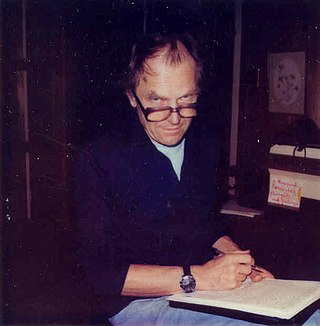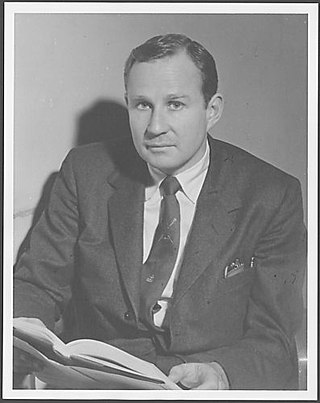Books
Originally his PhD thesis, this book was published in 1968.
A dialogue involving six friends from university days on a cycling tour. Ten years on, they revive the lively discussions they had as students, this time discussing relativism. The six friends each take a different perspective on the issue and these are each presented without comment, allowing the reader to make a kind of Kierkegaardian choice. An interesting aspect of the work is that their tour forms a kind of allegory of the discussion (for example, the riders encounter long and steep hills on days when they discuss particularly difficult issues).
Who's to Say? is available as a Google Books.
- The Great Conversation: A Historical Introduction to Philosophy [3]
By far his most popular work, this widely used textbook is currently in its eighth edition. It looks at philosophy as a conversation through the ages on matters of the deepest concern to humanity. Starting from Homer and Hesiod, the book moves through history, presenting each philosopher's work in part as a response to previous philosophers. The latest edition includes sections on contemporary philosophers as well as Muslim, Buddhist, and Jewish thinkers.
- Philosophical Conversations: A Concise Introduction [4]
An abbreviated and illustrated version of The Great Conversation.

Paul Karl Feyerabend was an Austrian philosopher best known for his work in the philosophy of science. He started his academic career as lecturer in the philosophy of science at the University of Bristol (1955–1958); afterwards, he moved to the University of California, Berkeley, where he taught for three decades (1958–1989). At various points in his life, he held joint appointments at the University College London (1967–1970), the London School of Economics (1967), the FU Berlin (1968), Yale University (1969), the University of Auckland, the University of Sussex (1974), and, finally, the ETH Zurich (1980–1990). He gave lecture series at Stanford University (1967), the University of Kassel (1977) and the University of Trento (1992).

John Henry McDowell, FBA is a South African philosopher, formerly a fellow of University College, Oxford, and now university professor at the University of Pittsburgh. Although he has written on metaphysics, epistemology, ancient philosophy, nature, and meta-ethics, McDowell's most influential work has been in the philosophy of mind and philosophy of language. McDowell was one of three recipients of the 2010 Andrew W. Mellon Foundation's Distinguished Achievement Award, and is a Fellow of both the American Academy of Arts & Sciences and the British Academy.

Wilfrid Stalker Sellars was an American philosopher and prominent developer of critical realism, who "revolutionized both the content and the method of philosophy in the United States".

John Jamieson Carswell Smart, was a British-Australian philosopher and was appointed as an Emeritus Professor by the Australian National University. He worked in the fields of metaphysics, philosophy of science, philosophy of mind, philosophy of religion, and political philosophy. He wrote multiple entries for the Stanford Encyclopedia of Philosophy.
Roy Wood Sellars was a Canadian-born American philosopher of critical realism and religious humanism, and a proponent of naturalistic emergent evolution. Sellars received his B.A. and Ph.D. from the University of Michigan, where he taught for over 40 years. He is the father of Wilfrid Sellars.
Metaphysical naturalism is a philosophical worldview which holds that there is nothing but natural elements, principles, and relations of the kind studied by the natural sciences. Methodological naturalism is a philosophical basis for science, for which metaphysical naturalism provides only one possible ontological foundation. Broadly, the corresponding theological perspective is religious naturalism or spiritual naturalism. More specifically, metaphysical naturalism rejects the supernatural concepts and explanations that are part of many religions.

Richard Newell Boyd was an American philosopher, who spent most of his career teaching philosophy at Cornell University where he was Susan Linn Sage Professor of Philosophy and Humane Letters Emeritus. He specialized in epistemology, the philosophy of science, language, and mind.
Paul Montgomery Churchland is a Canadian philosopher known for his studies in neurophilosophy and the philosophy of mind. After earning a Ph.D. from the University of Pittsburgh under Wilfrid Sellars (1969), Churchland rose to the rank of full professor at the University of Manitoba before accepting the Valtz Family Endowed Chair in Philosophy at the University of California, San Diego (UCSD) and joint appointments in that institution's Institute for Neural Computation and on its Cognitive Science Faculty.

Materialism and Empirio-criticism is a philosophical work by Vladimir Lenin, published in 1909. It was an obligatory subject of study in all institutions of higher education in the Soviet Union, as a seminal work of dialectical materialism, a part of the curriculum called "Marxist–Leninist Philosophy". Lenin argued that human perceptions correctly and accurately reflect an objective external world.

William Klaas Frankena was an American moral philosopher. He was a member of the University of Michigan's department of philosophy for 41 years (1937–1978), and chair of the department for 14 years (1947–1961).
Raymond Brassier is a British philosopher. He is member of the philosophy faculty at the American University of Beirut, Lebanon, known for his work in philosophical realism. He was formerly Research Fellow at the Centre for Research in Modern European Philosophy at Middlesex University, London, England.
Keith Campbell is an Australian philosopher working in metaphysics.

American philosophy is the activity, corpus, and tradition of philosophers affiliated with the United States. The Internet Encyclopedia of Philosophy notes that while it lacks a "core of defining features, American Philosophy can nevertheless be seen as both reflecting and shaping collective American identity over the history of the nation". The philosophy of the Founding Fathers of the United States is largely seen as an extension of the European Enlightenment. A small number of philosophies are known as American in origin, namely pragmatism and transcendentalism, with their most prominent proponents being the philosophers William James and Ralph Waldo Emerson respectively.
Robert F. Almeder is Professor Emeritus of Philosophy at Georgia State University. He is known in particular for his work on the philosophy of science, and has also written on the philosophy of mind, epistemology and ethics. He is the author of 24 books, including The Philosophy of Charles S. Peirce (1980), Death and Personal Survival (1992), Harmless Naturalism: The Limits of Science and the Nature of Philosophy (1998), Human Happiness and Morality (2000), and Truth and Skepticism (2010).
This is a list of articles in analytic philosophy.

Reza Negarestani is an Iranian philosopher and writer, known for "pioneering the genre of 'theory-fiction' with his book" Cyclonopedia which was published in 2008. It was listed in Artforum as one of the best books of 2009. Negarestani directs the critical philosophy programme at The New Centre for Research & Practice.
Pamfil Danilovich Yurkevich was a Ukrainian philosopher and teacher of philosophy at the Imperial University of Moscow.
Australian philosophy refers to the philosophical tradition of the people of Australia and of its citizens abroad. Academic philosophy has been mostly pursued in universities. It has been broadly in the tradition of Anglo-American analytic philosophy, but has also had representatives of a diverse range of other schools, such as idealism, Catholic neo-scholasticism, Marxism, and continental, feminist and Asian philosophy.

Charles Léopold Mayer (1881–1971) was a French biochemist, humanist and materialist philosopher.









